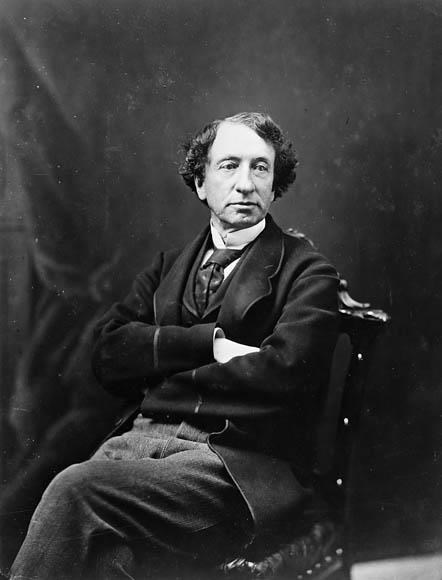What is history’s importance?
A decision of the Elementary Teachers Federation of Ontario raised that difficult question last week when the union passed a motion that schools bearing the name of Sir John A. Macdonald, the man remembered as the father of Confederation, should be renamed given how policies he helped enact impacted Indigenous people.
To many of us, the call to make Macdonald persona non grata feels like a direct attack on our history, a misguided attempt to bow to political correctness and historical revisionism. There’s no doubt, without Macdonald, this country would not exist in the way we see it today. His footprint is enormous.
When judged against our values today, which isn’t really fair to do, there’s no doubt MacDonald did some reprehensible things.
The question, I think, is how we reconcile the noble with the despicable when it comes to historical figures. Make no mistake, we, as a country, have to do it. It’s not a question so much of Macdonald as a singular person; it’s about what some are saying he represents: The dark side of how Canada came to be.
We can’t escape the fact that, by today’s standards, he was a racist.
We can’t ignore that Macdonald enacted ruthless policies that were devastating to First Nations. These policies were designed to clear space for new people, to clear the way for a railroad that would build a nation.
This is how Canada was born, in the cauldron of conquest, in the same way, using similar techniques, human societies have used since time immemorial. We can’t deny it or turn away from it. That’s the Truth part of Truth and Reconciliation.
The policy of assimilation Macdonald pushed for almost succeeded in finishing the destruction — by destroying First Nations culture — conquest brought with it. However, to Macdonald and the people of his era, this wasn’t destruction, but the gift of civilization (as it was narrowly defined at the time, with European style government and social construction as the pinnacle; everything else was inferior).
This doesn’t excuse anything, but it does give it context, and context, when it comes to history, is everything. It isn’t fair to judge their actions against our present morality.
Given the damage done by Macdonald and the policies of his time, I can fully understand why some people feel his name doesn’t belong on schools.
That said, the Canada of the latter half of the 1800s has become the Canada of 2017, a country that is trying to make amends for its crimes, a country renowned for its inclusivity, rule of law and liberal democratic principles. It’s a Canada that’s partaking in a Truth and Reconciliation process, not to bury the past, but to heal the wounds.
Macdonald’s fingerprints can be found there, too, as he created the conditions that allowed today’s Canada to evolve.
Sir John A. Macdonald is among a select group of people who had a direct hand in shaping this country. He was complicated, mercurial, contradictory. In other words, Macdonald was human, just like the rest of us.
Case in point: Even as he moved to force First Nations to assimilate, he pushed to extend the right to vote to Indigenous men (even writing to an Ojibway chief that he wanted to see Aboriginal people on equal footing with whites) and unmarried women, progressive policies that were unheard of at the time.
The bad things he did don’t outshine the good — they’re part and parcel. And the truth is far more complicated than simplistic notions of Macdonald as an evil racist.
Attempting to whitewash history does nothing to protect the present and, in fact, harms the future. Those who forget the past are condemned to repeat it, and all that.
Reconciliation means a restoration of mutual respect. Mutual. It means it has to come from both sides. Canada has acknowledged its crimes and we as a nation are working to move forward together, toward reconciliation. Macdonald’s shortcomings need to be understood in the context of his age, to be forgiven but not forgotten.
And that’s why we shouldn’t strip the names of men like Sir John A. Macdonald from our schools, because their contributions made our country into what it is today and because the complicated truth of Canada’s birth needs to be remembered.
So we can have true reconciliation, warts and all.
Mark Gentili is the managing editor of Sudbury.com and Northern Life.
